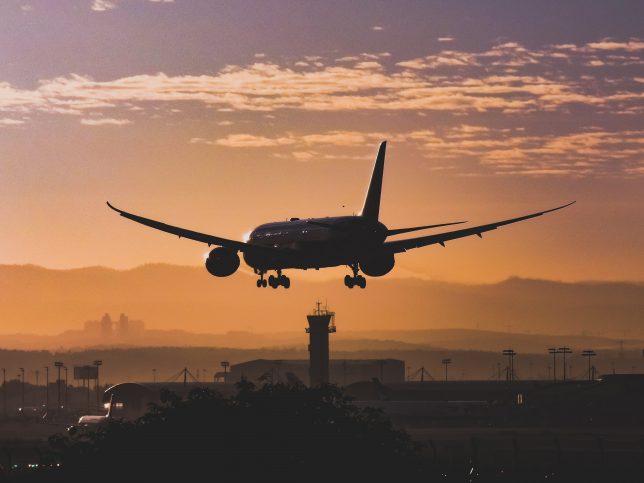Sustainable Aviation Fuel: A Game-Changer for Green Aviation
Table of Contents
- Introduction to Sustainable Aviation Fuel (SAF)
- The Need for Sustainable Aviation Fuels
- What is Sustainable Aviation Fuel?
- How is SAF Produced?
- Feedstocks Used
- Conversion Technologies
- Environmental Benefits of SAF
- The Role of SAF in the Aviation Industry
- Compatibility with Existing Infrastructure
- Case Study: Ryanair & Neste Partnership
- Challenges and Future Prospects
- Production Costs and Scalability
- Government Regulations and Support
- Technoilogy’s Contribution to the SAF Market
- Brand Overview
- Category Description
- Product Features
- Value Proposition
- Unique Selling Points (USP)
- Addressing Key Pain Points
- Emotional and Business Needs Satisfied
- Conclusion
Introduction to Sustainable Aviation Fuel (SAF)
The aviation industry plays a critical role in global transportation but is also a significant contributor to carbon emissions. With air traffic increasing every year, the need for sustainable alternatives to conventional jet fuel has become urgent.
Sustainable Aviation Fuel (SAF) emerges as the leading solution, offering a renewable and environmentally friendly alternative to fossil fuels. This article explores the benefits, challenges, and future prospects of SAF while highlighting its growing adoption in the industry.
The Need for Sustainable Aviation Fuels
Aviation accounts for approximately 2-3% of global CO₂ emissions, making it a crucial sector in the fight against climate change. Traditional jet fuels, such as Jet-A1, are petroleum-based and contribute significantly to greenhouse gas emissions.
To meet net-zero carbon goals and comply with international regulations like CORSIA (Carbon Offsetting and Reduction Scheme for International Aviation), airlines are increasingly adopting sustainable fuel alternatives such as SAF.
What is Sustainable Aviation Fuel?
Sustainable Aviation Fuel (SAF) is an advanced biofuel designed to replace conventional jet fuel. It is produced from renewable and non-fossil sources, including:
- Used cooking oil
- Animal fats
- Agricultural residues
- Municipal solid waste
- Algae and biomass
SAF can be blended with traditional jet fuel or used as a direct substitute without modifications to existing aircraft or airport infrastructure. The primary advantage of SAF is that it offers up to 80% lower CO₂ emissions over its lifecycle compared to petroleum-based jet fuels.
How is SAF Produced?
Feedstocks Used
SAF production relies on a variety of feedstocks that do not compete with food production. These include:
- Waste oils and fats (e.g., used cooking oil, tallow)
- Lignocellulosic biomass (e.g., agricultural waste, wood residues)
- Municipal solid waste (e.g., organic waste)
- Microalgae and synthetic fuels
Conversion Technologies
Several advanced refining processes are used to convert these feedstocks into aviation fuel:
- Hydroprocessed Esters and Fatty Acids (HEFA) – The most widely used method, converting fats and vegetable oils into SAF through hydrogenation.
- Fischer-Tropsch (FT) Process – Gasification of biomass to produce synthetic fuel.
- Alcohol-to-Jet (AtJ) Conversion – Transforming ethanol or methanol into SAF.
- Power-to-Liquid (PtL) Fuels – Producing SAF using renewable electricity, water, and CO₂.
These processes ensure that SAF meets the same safety and performance standards as conventional aviation fuels.
Environmental Benefits of SAF
The primary environmental benefits of SAF include:
- Up to 80% reduction in CO₂ emissions across its lifecycle.
- Lower particulate matter emissions, improving air quality.
- No sulfur emissions, reducing acid rain and other environmental impacts.
- Supports circular economy by repurposing waste materials into valuable fuel.
Unlike traditional biofuels, SAF does not require deforestation or excessive land use, making it a truly sustainable option for aviation.
The Role of SAF in the Aviation Industry
Compatibility with Existing Infrastructure
One of the biggest advantages of SAF is that it can be used in existing aircraft and fueling infrastructure without modification. Airlines can integrate SAF into their fleets without costly upgrades, making it an immediate and practical solution.
Case Study: Ryanair & Neste Partnership
Leading low-cost carrier Ryanair has expanded its partnership with Neste, a world-renowned SAF supplier. Since April 1st, Ryanair has been using a 40% SAF blend for all flights departing from Amsterdam Schiphol Airport (AMS).
This partnership aligns with Ryanair’s goal to achieve a 12.5% SAF usage by 2030, contributing to a more sustainable aviation sector.
Challenges and Future Prospects
Production Costs and Scalability
Despite its benefits, SAF remains expensive compared to fossil jet fuel. Key factors influencing costs include:
- Limited feedstock availability
- High production costs due to emerging technologies
- Need for larger-scale refineries
Investments in scaling up production and advancing technologies are essential for making SAF cost-competitive.
Government Regulations and Support
Several policies and incentives are being introduced worldwide to boost SAF adoption, such as:
- EU Green Deal – Encouraging SAF production and usage.
- U.S. Sustainable Aviation Fuel Tax Credit – Offering financial support to producers.
- ICAO’s CORSIA program – Mandating emissions reductions through SAF.
Such regulations will drive further SAF adoption across the aviation sector.
Contact Us to discover our services. Technoilogy’s Contribution to the SAF Market.

